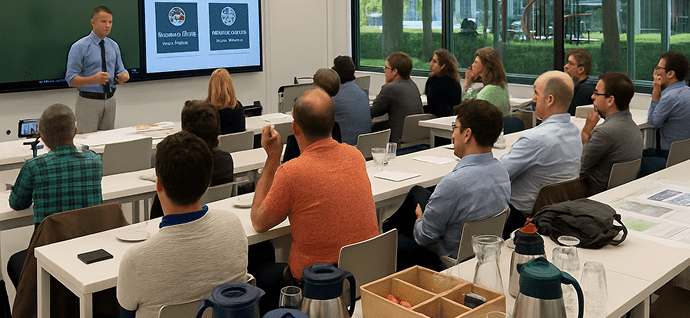EDU4Standards is running a series of pilot programmes across Europe to strengthen the teaching of standardisation in both educational and professional settings.
These pilots aim to test and enhance our teaching approach, raise awareness of standardisation, and support the development of a vibrant learning community. Through ongoing feedback, the materials and methods are being refined to meet the evolving needs of students and professionals.
As part of this initiative, project partner House of Knowledge (HoK) introduced two Serious Games—interactive learning tools designed to explore complex topics in an engaging and practical way. These games were successfully tested within EDU4Standards pilot activities, allowing participants to experience the role and relevance of standards through hands-on scenarios.
What are Serious Games?
Serious Games are educational tools with a purpose beyond entertainment. They enable learners to explore topics through immersive experiences that foster deeper understanding, critical thinking, and collaboration. In the case of EDU4Standards, the focus is on standardisation and its connection to business, regulation, and innovation.
Seriously Seamless Society?
This game challenges players to navigate how standards influence international business. Participants make decisions about bringing a new technology to market while considering applicable standards, regulations, and laws. Designed for use in classrooms, auditoriums, or group settings (1–5 players), it requires no prior knowledge and offers a dynamic, accessible introduction to the topic.
Seriously Standard
In this game, players step into the shoes of stakeholders in the standardisation process. They engage in decision-making, negotiation, and consensus-building to understand how standards are developed and why they matter for business. Ideal for group sessions, the game encourages active learning and discussion in a simulated standard-setting environment.
Both games were piloted within EDU4Standards and have proven to be valuable tools for sparking dialogue, encouraging teamwork, and making complex concepts more accessible. Their versatility allows them to be used not only in corporate training but also in higher education settings, as demonstrated during the project’s pilot phases.
These games are based on a concept developed with and for Standards Norway.
